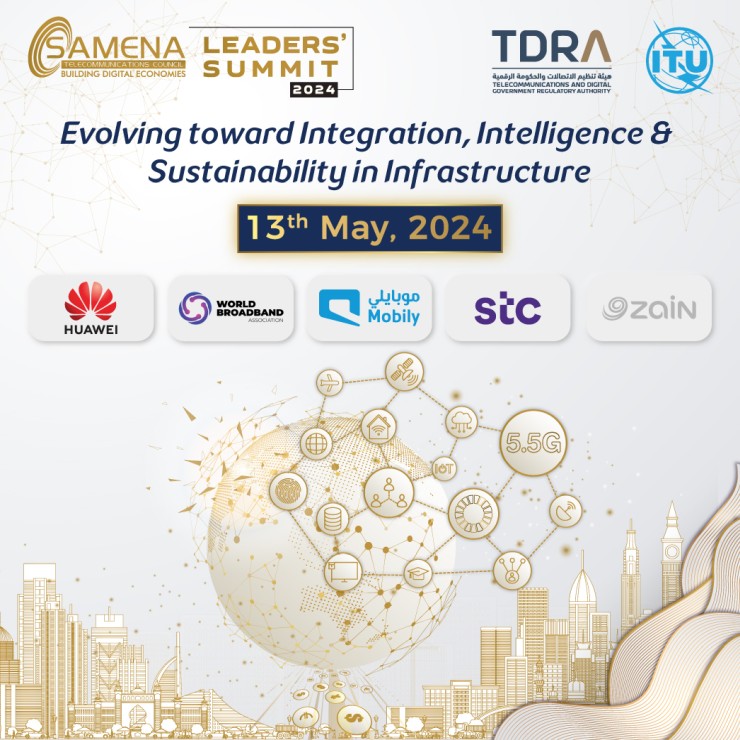Efforts to strengthen Bahrain's digital economy will begin in earnest next year when the kingdom launches a major upgrade of its broadband internet infrastructure.
Bahrain plans to roll out a new fiber optic cable network over a four-year period, boosting its already robust IT infrastructure and paving the way for expansion in segments with high-growth potential, such as e-commerce. The Telecommunications Regulatory Authority (TRA), which will oversee the initiative, said it aimed to ensure 80% of the population had access to the service by 2018.
Faster and broader
Bahrain's new network will have the capacity to deliver data at 300 megabytes/second - three times faster than 4G LTE mobile broadband. While a budget for the network has yet to be finalised, TRA chairman Mohammed Ahmed Alamer told the media the initiative was "one of the biggest projects in Bahrain".
Faster speeds and wider coverage should strengthen the sector, which is already poised to benefit from mobile infrastructure investment. Last month, Menatelecom announced completion of its network upgrade to long-term evolution (LTE) while in the first quarter the Bahraini branch of regional mobile operator Zain launched hi-speed 4G LTE network at a cost of $100m.
"In the backdrop of intense competition prevalent in the Bahraini market for the past few years and the resultant unfavourable impact on profitability; operators in the Kingdom are considering 4G LTE as a platform to more effectively monetise investments," Mohammed Zainalabedin, general manager at Zain told OBG. "The deployment of 4G networks is able to drive multiple stakeholder value for the foreseeable future," he added.
Growth in mobile services across the region is growing. According to a June report by Global Investment House, the Gulf Cooperation Council (GCC) mobile subscriber base grew at a compound annual growth rate (CAGR) of 10.4% between 2008 and 2012. The Kuwaiti investment firm expects the number of mobile subscribers to reach the 100-million mark by 2020, up from 84m in 2013. Supporting SMEs
E-commerce and B2B IT services are seen as areas offering significant growth potential within the digital economy, particularly once the TRA's planned investment in high-speed broadband networks gains momentum. Enterprise customers are a major area of growth for telecom operators, according to Ulaiyan Al Wetaid, CEO of Viva Bahrain.
"There is a very big potential to address enterprise customers' needs for ICT services based on: vertical industry solutions such as e-learning, e-health, e-commerce. And horizontal services such as managed services, systems integration, cloud computing and M2M (machine-to-machine)," he told OBG.
New digital services and applications are emerging in Bahrain, especially in businesses such as healthcare, banking and finance, transportation and the energy sector, according to Huawei Bahrain's General Manager Li Han, being quoted in the local media, who noted the encouraging progress in the development of ICT infrastructure.
Deloitte expects small- to medium-sized enterprises (SMEs) in the Middle East to spend more than $22bn on ICT services in 2014, up 10% from last year. At present, an estimated 15%-25% of SMEs in the region are believed to have an internet presence. In its report, titled Technology, Media & Telecommunications Predictions 2014 Middle East, Deloitte attributed the low percentage, in part, to lack of SME financing. Bahrain's Tamkeen enterprise incubator has begun offering funding to SMEs using the ICT services of telecoms company Batelco, as part of a drive to encourage take-up.
Smart home
Bahrain's e-commerce segment is already a strong performer on the regional stage. The kingdom notched up a compound annual growth rate (CAGR) of 46% for online sales volumes between 2012 and 2014 which was double the regional average.
"M2M and m-commerce have emerged as the most economically and commercially viable adjacencies for telecoms," said Zain's Zainalabedin, with the operator looking at smart cars and smart metering, as well as emerging trends such as smart homes in particular. The market for M2M services, referring to technologies that allow both wireless and wired systems to communicate with other devices of the same type, is nascent in Bahrain yet promising in the long-term, Viva's Al Wetaid told OBG.
"There will be a growing demand for: telemetry services such as the recording and monitoring of energy consumption or medical devices. And fleet management to monitor, manage and locate vehicles remotely," he said.
e-government praised
According to a new report, Bahrain ranked first among Arab countries and in the top 20 globally on its e-government development index (EGDI). The 2014 UN E-Government Survey rates online service availability, telecoms infrastructure and human capital development.
The report's authors regard the development of online government services, along with telecom infrastructure strength, as a key conduit for equitable and sustainable economic development. Bahrain jumped from 36th on the index in 2012 to 18th in 2014, taking its place among the cadre of world e-government leaders with "very high" EGDI scores and rising higher than any of the other top-25-ranked countries.
The UN survey, released in June, highlighted the government's open data portal, which allows developers and other users to access government data sets for other applications. The data portal also put Bahrain among the top 50 countries for use of government data amongst external stakeholders.
Source: http://www.zawya.com/story/Bahrain_moves_to_boost_digital_economy-ZAWYA20140723090208/
